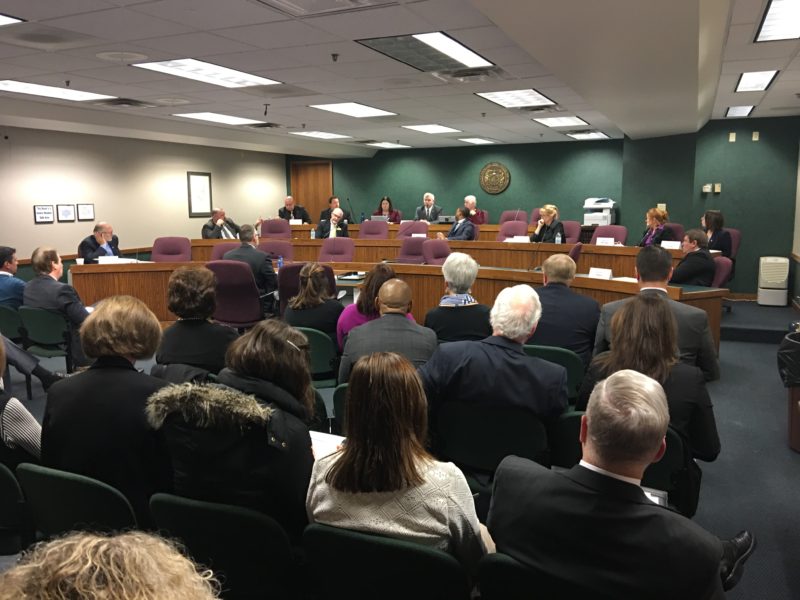JEFFERSON CITY, Mo. – The issue of Real ID managed to make it through the entire Senate committee hearing last week without a single opponent speaking against the bill.
But opposition to the federally-approved identification finally appeared in Tuesday afternoon’s hearing in the House Committee on Government Efficiency.
Rep. Kevin Corlew is the sponsor of HB 151, a bill similar to the two bills in the Senate, filed by Sens. Silvey and Rowden. Like the senators, Corlew spoke of the impending January 2018 deadline, urging lawmakers to pass the legislation required to make the Show-Me State compliant with the federal standard.
The U.S. Congress passed the Real ID Act in 2005, but Missouri to this day remains one of five states who has not implemented the standard. Just this month, Kentucky and Pennsylvania were granted extensions by the Department of Homeland Security to begin putting Real ID in place. Missouri would also receive an extension if they choose to pass one of the Real ID bills.
If Missouri does not meet the deadline, then anyone seeking to fly on a commercial plane or access a military base would be required to use a passport or another form of federally-recognized identification. State-issued licenses would not be permitted.
Despite those concerns, Rep. Bill Kidd said he was against the bill.
“One of the things that bothers me is that, if history recalls, the two most scary words in Germany were ‘Papers, please’,” he said. “The reality behind this is that this is a national ID, put out to be compliant with the federal government. I’m worried about Fourth Amendment rights if we start down this path, but what about my rights of freedom to travel?”
“Why don’t we try to turn it around, and make the feds have to have an ID to be in our state?” Kidd continued. “Why are we continuing to jump through the hoops for a national ID? This is just one more step down that path of state nullification, no states but the federal government.”
“As far as the authority of the federal government, they’ve overreached several times, I’m with you on that. But they do have some enumerated powers,” Corlew responded. “One of those powers is to regulate interstate commerce. That’s why we need to find a way to allow those that need the identification can get it and those who want to opt out can.”
Indeed, Corlew’s bill, as well as the matching Senate bills, includes language to establish a two-prong system, in which people can choose to get the Real ID compliant license or a non-compliant license.
Witnesses at the Tuesday afternoon hearing testified why the legislation must be passed, citing concerns about decreased access to flights, restricted access to military installations, and issues delivering and transporting goods and services.
But some of the testimonies claimed that there was an issue in implementation, that some military bases do not accept passports. While they believed that showed the need to implement Real ID, Kidd saw it the other way.
“If they’re not consistent today, and making us go through all of these hoops now, who’s going to say that three years from now they’ll change it to require everyone to have this national ID?” Kidd asked.
Benjamin Peters was a reporter for The Missouri Times and Missouri Times Magazine and also produced the #MoLeg Podcast. He joined The Missouri Times in 2016 after working as a sports editor and TV news producer in mid-Missouri. Benjamin is a graduate of Missouri State University in Springfield.










